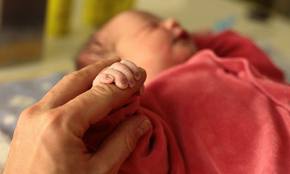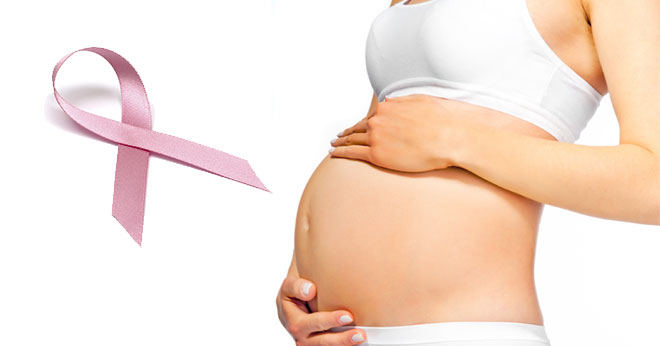Understanding Cancer During Pregnancy
 Medical experts have long pointed to the fact that while smoking has been directly linked to causing lung cancer, eating highly processed and junk food for over long periods of time has been proven to cause other forms of cancer in the body. While this may be the case, can a woman be spared from this deadly disease during pregnancy? Read on to find out.
Medical experts have long pointed to the fact that while smoking has been directly linked to causing lung cancer, eating highly processed and junk food for over long periods of time has been proven to cause other forms of cancer in the body. While this may be the case, can a woman be spared from this deadly disease during pregnancy? Read on to find out.
Cancer during pregnancy is uncommon, occurring in approximately one out of every 1,000 pregnancies. Because of this, both doctors and women were often unsure about how to deal with cancer during pregnancy for many years. However, as more women with cancer are deciding with their doctors to start or continue treatment while pregnant, more information about treating and living with cancer during pregnancy is available than ever before.
 Most importantly, a pregnant woman with cancer is capable of giving birth to a healthy baby because cancer rarely affects the fetus directly. Although some cancers may spread to the placenta (a temporary organ that connects the mother to the fetus), most cancers cannot spread to the baby. However, being pregnant with cancer is extremely complicated for both the mother and the health care team. Therefore, it is important to find a doctor who has experience treating pregnant women with cancer. Learn more about finding an oncologist.
Most importantly, a pregnant woman with cancer is capable of giving birth to a healthy baby because cancer rarely affects the fetus directly. Although some cancers may spread to the placenta (a temporary organ that connects the mother to the fetus), most cancers cannot spread to the baby. However, being pregnant with cancer is extremely complicated for both the mother and the health care team. Therefore, it is important to find a doctor who has experience treating pregnant women with cancer. Learn more about finding an oncologist.
Diagnosis
Being pregnant often delays a cancer diagnosis because some cancer symptoms, such as abdominal bloating, frequent headaches, or rectal bleeding, are common during pregnancy and are not considered suspicious. On the other hand, pregnancy can sometimes uncover cancer that has previously gone undetected. For example, a Pap test done as part of standard prenatal care can detect cervical cancer. Similarly, an ultrasound performed during pregnancy can find ovarian cancer that might otherwise go undiagnosed.
The cancers that tend to occur during pregnancy are those that are more common in younger people, such as cervical cancer, breast cancer, thyroid cancer, Hodgkin lymphoma, non-Hodgkin lymphoma, and melanoma, as well as gestational trophoblastic tumor, which is a rare cancer that occurs in a woman’s reproductive system.
The most common cancer in pregnant women is breast cancer, which affects approximately one in 3,000 pregnancies. Pregnancy-related breast enlargement may make it difficult to detect small breast tumors, and most women do not have a mammogram while pregnant. As a result, researchers have estimated that pregnant women with breast cancer are often diagnosed two to six months later than non-pregnant women.
If cancer is suspected during pregnancy, women and their doctors may be concerned about diagnostic tests such as x-rays. However, research has shown that the level of radiation in diagnostic x-rays is too low to harm the fetus. Computed tomography (CT) scans are similar to x-rays because they use ionizing radiation. However, CT scans are much more accurate than x-rays at outlining internal organs and structures and can be very helpful in making a diagnosis of cancer or determining whether the cancer has spread. CT scans of the head or the chest are generally considered safe during pregnancy as there is no direct radiation exposure to the fetus. When possible, women may use a lead shield that covers the abdomen (stomach) for extra protection during both x-rays and CT scans. CT scans of the abdomen or pelvis should be done only if absolutely necessary and after discussion with the medical team. Other diagnostic tests—such as magnetic resonance imaging (MRI), ultrasound, and biopsy—are also considered safe during pregnancy because they don’t use ionizing radiation.
Treatment
When making treatment decisions for cancer during pregnancy, the doctor considers the best treatment options for the mother and the possible risks to the developing baby. The type of treatment chosen depends on many factors, including the gestational age of the fetus (stage of the pregnancy); the type, location, size, and stage of the cancer; and the wishes of the expectant mother and her family. Because some cancer treatments can harm the fetus, especially during the first trimester (the first three months of pregnancy), treatment may be delayed until the second or third trimesters. When cancer is diagnosed later in pregnancy, doctors may wait to start treatment until after the baby is born, or they may consider inducing labor early. In some cases, such as early-stage (stage 0 or IA) cervical cancer, doctors may wait to treat the cancer until after delivery.
Some cancer treatments may be used during pregnancy but only after careful consideration and treatment planning to optimize the safety of both the mother and the unborn baby. These include surgery, chemotherapy, and rarely, radiation therapy.
Surgery. Surgery is the removal of the tumor and surrounding tissue during an operation. It poses little risk to the developing baby and is considered the safest cancer treatment option during pregnancy. In some cases, more extensive surgery can be done to avoid having to use chemotherapy or radiation therapy.
Chemotherapy. Chemotherapy is the use of drugs to destroy cancer cells, usually by stopping the cancer cells’ ability to grow and divide. Chemotherapy can harm the fetus, particularly if it is given during the first trimester of pregnancy when the fetus’ organs are still developing. Chemotherapy during the first trimester may cause birth defects or even the loss of the pregnancy (miscarriage).
During the second and third trimesters, some types of chemotherapy may be given without necessarily harming the fetus. The placenta acts as a barrier between the mother and the baby, and some drugs cannot pass through this barrier, or they pass through in very small amounts. If the planned chemotherapy includes a drug that is not safe during any stage of pregnancy, the doctor can sometimes substitute another drug.
Although chemotherapy in the later stages of pregnancy may not directly harm the developing baby, it may cause side effects like malnutrition and anemia (a low red blood cell count) in the mother that may cause indirect harm. In addition, chemotherapy given during the second and third trimesters sometimes causes early labor and low birth weight, both of which may lead to further health concerns for the mother and the baby. The baby may struggle to gain weight and fight infections, and the mother may have trouble breastfeeding.
Radiation therapy. Radiation therapy is the use of high-energy x-rays or other particles to destroy cancer cells. Because radiation therapy can harm the fetus, particularly during the first trimester, doctors generally avoid using this treatment. Even in the second and third trimesters, the use of radiation therapy is uncommon, and the risks to the developing baby depend on the dose of radiation and the area of the body being treated.
Breastfeeding
Although cancer cells cannot pass to the infant through breast milk, doctors advise women who are being treated for cancer not to breastfeed. Chemotherapy can be especially dangerous because the drugs may be transferred to the infant through breast milk. Similarly, radioactive components that are taken internally, such as radioactive iodine used in treating thyroid cancer, may also get into breast milk and harm the infant.
How pregnancy affects recovery from cancer
The prognosis (chance of recovery) for a pregnant woman with cancer is often the same as other women of the same age with the same type and stage of cancer. However, if a woman’s diagnosis or treatment is delayed during pregnancy, the extent of the cancer may be greater, resulting in a worse overall prognosis. In addition, because of the amount of hormones produced during pregnancy, it has the potential to affect the growth and spread of some types of cancer. It is important to talk with your doctor about how pregnancy may affect your specific cancer, as well as your recovery.









